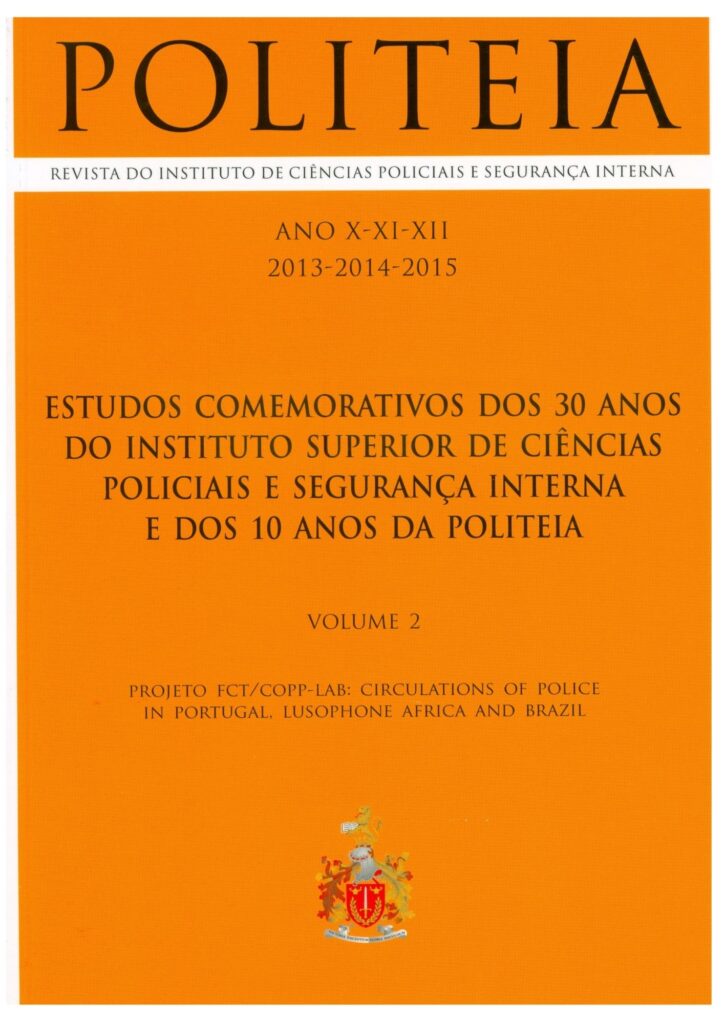Desafios e Avanços da Política de Formação Especializada de Profissionais de Segurança Pública no Brasil: Reflexões sobre a RENAESP
Palavras chave:
Este artigo objetiva apresentar como a produção acadêmica dos concluintes dos cursos de especializações vinculados à Rede Nacional de Altos Estudos em Segurança Pública (RENAESP) discute e contribui para a agenda de pesquisa neste campo do conhecimento. O recorte empírico se restringe ao período de 2005 a 2011, com foco na experiência de implementação da política nacional de formação de profissionais de segurança pública no estado da Bahia, a partir de convênios firmados entre a Secretaria Nacional de Segurança Pública e a Universidade Federal da Bahia. Nesse sentido, apresenta brevemente as razões de criação da Rede e descreve sua trajetória. Igualmente, reflete sobre os impasses na relação entre intelectuais e burocracias policiais que dificultou o desenvolvimento de pesquisas e constrangeu propostas alternativas de reformas nas políticas de segurança. A análise dos dados empíricos evidencia que além da abordagem de questões comuns como o fenômeno da violência e da criminalidade, exteriores às corporações policiais, alunos se voltaram para a análise crítica das práticas policiais a partir de pesquisas que tomaram as próprias corporações como objeto de investigação.
This article has as its objective demonstrating how academic production of graduates from specialization courses linked to the National Network for High Studies in Public Security (Rede Nacional de Altos Estudos em Segurança Pública – RENAESP) discusses and contributes to the research agenda of this field of knowledge. Empirically, it is limited to 2005 and 2011, focusing on the experience of implementing this policy in the state of Bahia with partnerships between the National Secretariat for Public Security and the Federal University of Bahia. To this end, it briefly presents the reasons behind the creation of the Network and des cribes its trajectory. It also reflects on the relationship impasses between intellectuals and police bureaucrats, which made research development harder and inhibited alternative proposals for reform in security policies. The analysis of the empirical data shows that other than common questions such as the violence phenomenon and criminality, which are outside of police institutions, the students focused on the critical analysis of police practices from works that had the institutions themselves as the object of study.
Versão original
Versão original
Outros artigos nesta edição
-
Editorial
Manuel Monteiro Guedes Valente
-
Modelos Constitucionais de Polícia e Cooperação na Segurança Interna
Manuel Monteiro Guedes Valente
-
Para lá dos códigos. O papel do Estado e a heterogeneidade do pluralismo jurídico em Moçambique
Sara Araújo
-
Cooperação Internacional para a Formação de Polícias: um caso em Portugal
Susana Durão e Joana Oliveira
-
Efeitos Possíveis da Cooperação Policial. Oficiais entre Portugal e África
Susana Durão e Daniel Seabra Lopes
-
Renovações da Polícia em Angola: cooperação e formação internacional
Cristina Udelsmann Rodrigues
-
Cruzamentos em retorno: Polícias em Lisboa, Praia e Brasília
Joana Oliveira
-
O Modelo de Policiamento Comunitário nos Programas de Educação Policial: uma breve Revisão da Literatura Especializada sobre o Assunto
Paula Poncioni
-
Desafios e Avanços da Política de Formação Especializada de Profissionais de Segurança Pública no Brasil: Reflexões sobre a RENAESP
Ivone Freire Costa, Íris Gomes dos Santos e Anderson Souza da Silva
-
Polícias no Brasil: Entre Passado, Presente e Futuro
Célio Jacinto Santos
-
Diplomacia Policial
Guilherme Cunha Werner
-
Ideias de Chegada e Pontos de Partida. Diplomacia Policial: Formação e saberes
Manuel Monteiro Guedes Valente




